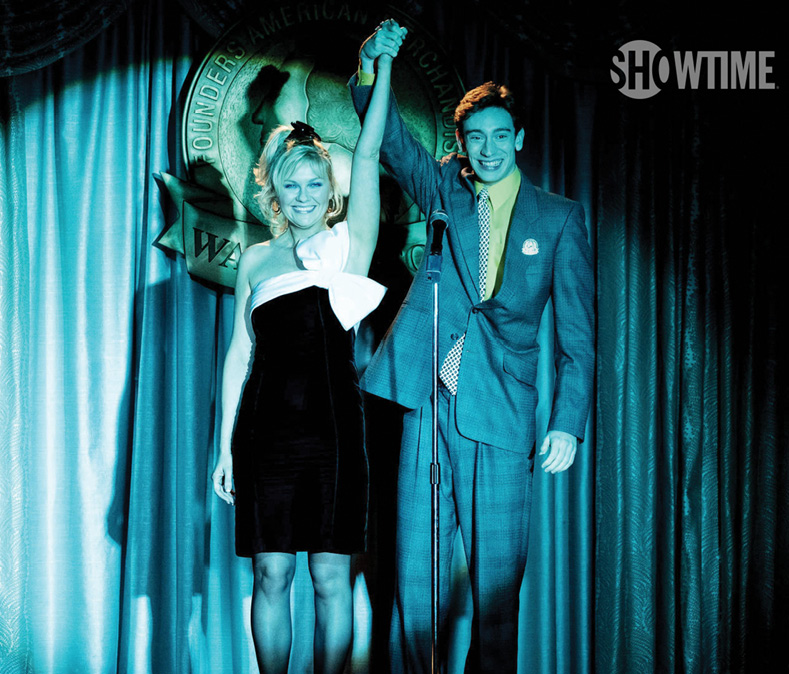
On Becoming a God in Central Florida is an oddly academic-sounding title for a TV show, especially one as kinetic and funny as the Showtime series starring Kirsten Dunst that premiered in August. But as the series’ co-creator Robert Funke, BA’09, explains, the title reflects the nature of the storytelling.
“There’s a little bit of ironic distance in the way we present the show,” he says. “And the title is a little bit pretentious, a little bit self-aware.” Funke and writing partner Matt Lusky got some pushback on the name, but Dunst liked it, and “when Kirsten likes something,” Funke says, “you typically get to keep it.”

Funke grew up in Kingsport, Tennessee, and initially studied neuroscience at Vanderbilt but “made a very late switch to English” after it became clear that premed was not the path for him. A class with Associate Professor of English Nancy Reisman awakened his desire to pursue creative writing, and, shortly after his graduation, Funke was invited to become one of the founding editors of Nashville Review. He cites the community of writers at Vanderbilt—and especially encounters with Reisman, Will Akers, Matthew Baker, MFA’12, and novelist Kevin Wilson, BA’00—with influencing his decision to commit to a writing career and ultimately attend film school at the University of Southern California, where he met Lusky.
Bringing On Becoming a God to the screen was a lengthy process—Funke describes it as “a four-year car wreck that somehow ejected us into a better car than we started with”—but the final result is a startlingly original series. Set in the early 1990s, the story revolves around a young working-class mom named Krystal (Dunst), whose life is upended when her husband falls under the spell of a cultish, Amway-like multilevel marketing scheme. Krystal is equal parts likable and ferocious, and the show comes at gritty, real-world issues of class and gender with both anger and over-the-top humor.
Funke, who won the Susan Ford Wiltshire Essay Prize at Vanderbilt for a paper about gender dynamics in Shakespeare’s Titus Andronicus, is frank about his interest in “telling a woman’s story” and says “there are elements in Krystal that came out of that essay years ago.” He’s also interested in highlighting the effects of economic inequality in a wealth-obsessed culture, but never wants the show to become a sermon or polemic.
“Some of these ideas are grave and grand, but the show lives because it presents a world where the joyous and the beautiful and the chaotic and the ugly happen all at once,” he says. “And it’s funny. We do a lot of dumb jokes.”
—Maria Browning